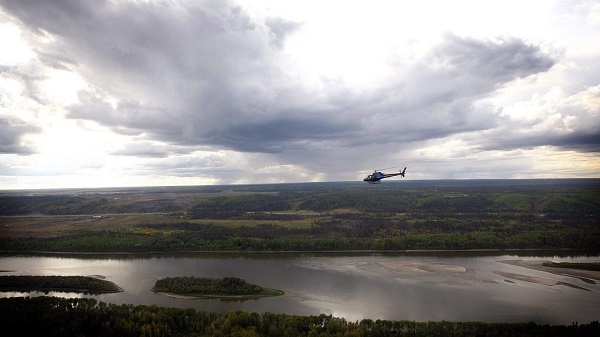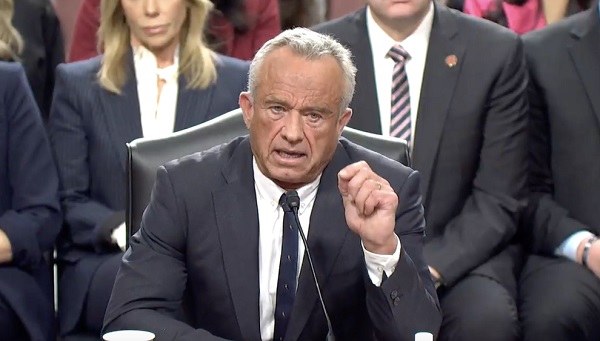Alberta
Trans Mountain pipeline construction is underway!

From the Province of Alberta
Trans Mountain expansion update: Minister Savage
Energy Minister Sonya Savage issued the following statement regarding the start of Alberta pipeline construction for the Trans Mountain expansion project:
“This is a positive step forward for Trans Mountain, our province and our country.
“When operational, this pipeline will result in billions of revenues, and construction activites will spur thousands of well-paying jobs for Canadians across the country.
“That’s why it’s crucial the project not be subject to any further delays between now and completion. And while completion is the one true measure of success, it’s important to acknowledge milestones – like this – along the way.
“Perseverance has got us to this point. When others were criticizing our energy industry and the value of future pipelines, Albertans did not waver. That’s why our government has been tireless in our advocacy for the Trans Mountain Pipeline expansion project and why we’ll continue to engage the federal government to discuss Alberta’s priorities and challenges.
“We will continue to fight. To fight for investment, to fight for jobs, to fight for more pipelines and to fight to continue to develop our natural resources in a responsible manner for the benefit of all Canadians.
”Albertans can be assured their government will continue to stand up for our energy industry.”
Additional message from Jason Nixon, Minister of Environment and Parks:
“We’re pleased to see progress on a vital job-creating project facilitated in part by Alberta Environment and Parks’ efficient and effective permitting process. Alberta is a world leader in developing resources in an environmentally sound manner, and pipelines are the most efficient means of transporting those resources from the perspective of greenhouse gas emissions. I hope that movement on this project is a sign of even better things ahead for market access for Alberta oil and gas.”
Alberta
Alberta’s move to ‘activity-based funding’ will improve health care despite naysayer claims

From the Fraser Institute
After the Smith government recently announced its shift to a new approach for funding hospitals, known as “activity-based funding” (ABF), defenders of the status quo in Alberta were quick to argue ABF will not improve health care in the province. Their claims are simply incorrect. In reality, based on the experiences of other better-performing universal health-care systems, ABF will help reduce wait times for Alberta patients and provide better value-for-money for taxpayers.
First, it’s important to understand Alberta is not breaking new ground with this approach. Other developed countries shifted to the ABF model starting in the early 1990s.
Indeed, after years of paying their hospitals a lump-sum annual budget for surgical care (like Alberta currently), other countries with universal health care recognized this form of payment encouraged hospitals to deliver fewer services by turning each patient into a cost to be minimized. The shift to ABF, which compensates hospitals for the actual services they provide, flips the script—hospitals in these countries now see patients as a source of revenue.
In fact, in many universal health-care countries, these reforms began so long ago that some are now on their second or even third generation of ABF, incorporating further innovations to encourage an even greater focus on quality.
For example, in Sweden in the early 1990s, counties that embraced ABF enjoyed a potential cost savings of 13 per cent over non-reforming counties that stuck with budgets. In Stockholm, one study measured an 11 per cent increase in hospital activity overall alongside a 1 per cent decrease in costs following the introduction of ABF. Moreover, according to the study, ABF did not reduce access for older patients or patients with more complex conditions. In England, the shift to ABF in the early to mid-2000s helped increase hospital activity and reduce the cost of care per patient, also without negatively affecting quality of care.
Multi-national studies on the shift to ABF have repeatedly shown increases in the volume of care provided, reduced costs per admission, and (perhaps most importantly for Albertans) shorter wait times. Studies have also shown ABF may lead to improved quality and access to advanced medical technology for patients.
Clearly, the naysayers who claim that ABF is some sort of new or untested reform, or that Albertans are heading down an unknown path with unmanageable and unexpected risks, are at the very least uninformed.
And what of those theoretical drawbacks?
Some critics claim that ABF may encourage faster discharges of patients to reduce costs. But they fail to note this theoretical drawback also exists under the current system where discharging higher-cost patients earlier can reduce the drain on hospital budgets. And crucially, other countries have implemented policies to prevent these types of theoretical drawbacks under ABF, which can inform Alberta’s approach from the start.
Critics also argue that competition between private clinics, or even between clinics and hospitals, is somehow a bad thing. But all of the developed world’s top performing universal health-care systems, with the best outcomes and shortest wait times, include a blend of both public and private care. No one has done it with the naysayers’ fixation on government provision.
And finally, some critics claim that, under ABF, private clinics will simply focus on less-complex procedures for less-complex patients to achieve greater profit, leaving public hospitals to perform more complex and thus costly surgeries. But in fact, private clinics alleviate pressure on the public system, allowing hospitals to dedicate their sophisticated resources to complex cases. To be sure, the government must ensure that complex procedures—no matter where they are performed—must always receive appropriate levels of funding and similarly that less-complex procedures are also appropriately funded. But again, the vast and lengthy experience with ABF in other universal health-care countries can help inform Alberta’s approach, which could then serve as an example for other provinces.
Alberta’s health-care system simply does not deliver for patients, with its painfully long wait times and poor access to physicians and services—despite its massive price tag. With its planned shift to activity-based funding, the province has embarked on a path to better health care, despite any false claims from the naysayers. Now it’s crucial for the Smith government to learn from the experiences of others and get this critical reform right.
2025 Federal Election
Group that added dozens of names to ballot in Poilievre’s riding plans to do it again

From LifeSiteNews
The ‘Longest Ballot Committee’ is looking to run hundreds of protest candidates against Conservative leader Pierre Poilievre in an upcoming by-election in the Alberta.
A group called the “Longest Ballot Committee” is looking to run hundreds of protest candidates against Conservative Party leader Pierre Poilievre in an upcoming by-election in the Alberta Battle River–Crowfoot riding, just like they did in his former Ottawa-area Carelton riding in last week’s election.
The Longest Ballot Committee is a grassroots group that packs ridings with protest candidates and is looking to place 200 names in the Battle River–Crowfoot riding. The riding was won by Conservative-elect MP Damien Kurek who garnered over 80 percent of the vote, but has since said he is going to vacate his seat to allow Poilievre to run a by-election and reclaim his seat in Parliament in a Conservative-safe area.
In an email to its followers, the committee said “dozens and dozens” of volunteers are ready to sign up as candidates for the yet-to-be-called by-election. The initiative follows after the group did the same thing in Poilievre’s former Carelton riding which he lost last Monday, and which saw voters being given an extremely long ballot with 90 candidates.
The group asked people who want to run to send them their legal name and information by May 12, adding that if about 200 people sign up they will “make a long ballot happen.”
-

 International2 days ago
International2 days agoIce Surprises – Arctic and Antarctic Ice Sheets Are Stabilizing and Growing
-

 Alberta2 days ago
Alberta2 days agoEnergy projects occupy less than three per cent of Alberta’s oil sands region, report says
-

 Energy2 days ago
Energy2 days agoOil tankers in Vancouver are loading plenty, but they can load even more
-

 Energy2 days ago
Energy2 days agoCarney’s energy superpower rhetoric falls flat without policy certainty
-

 2025 Federal Election2 days ago
2025 Federal Election2 days agoGroup that added dozens of names to ballot in Poilievre’s riding plans to do it again
-

 Alberta2 days ago
Alberta2 days agoCharges laid in record cocaine seizure
-

 2025 Federal Election2 days ago
2025 Federal Election2 days agoCarney says Liberals won’t make voting pact with NDP
-

 Autism1 day ago
Autism1 day agoNIH, CMS partner on autism research







